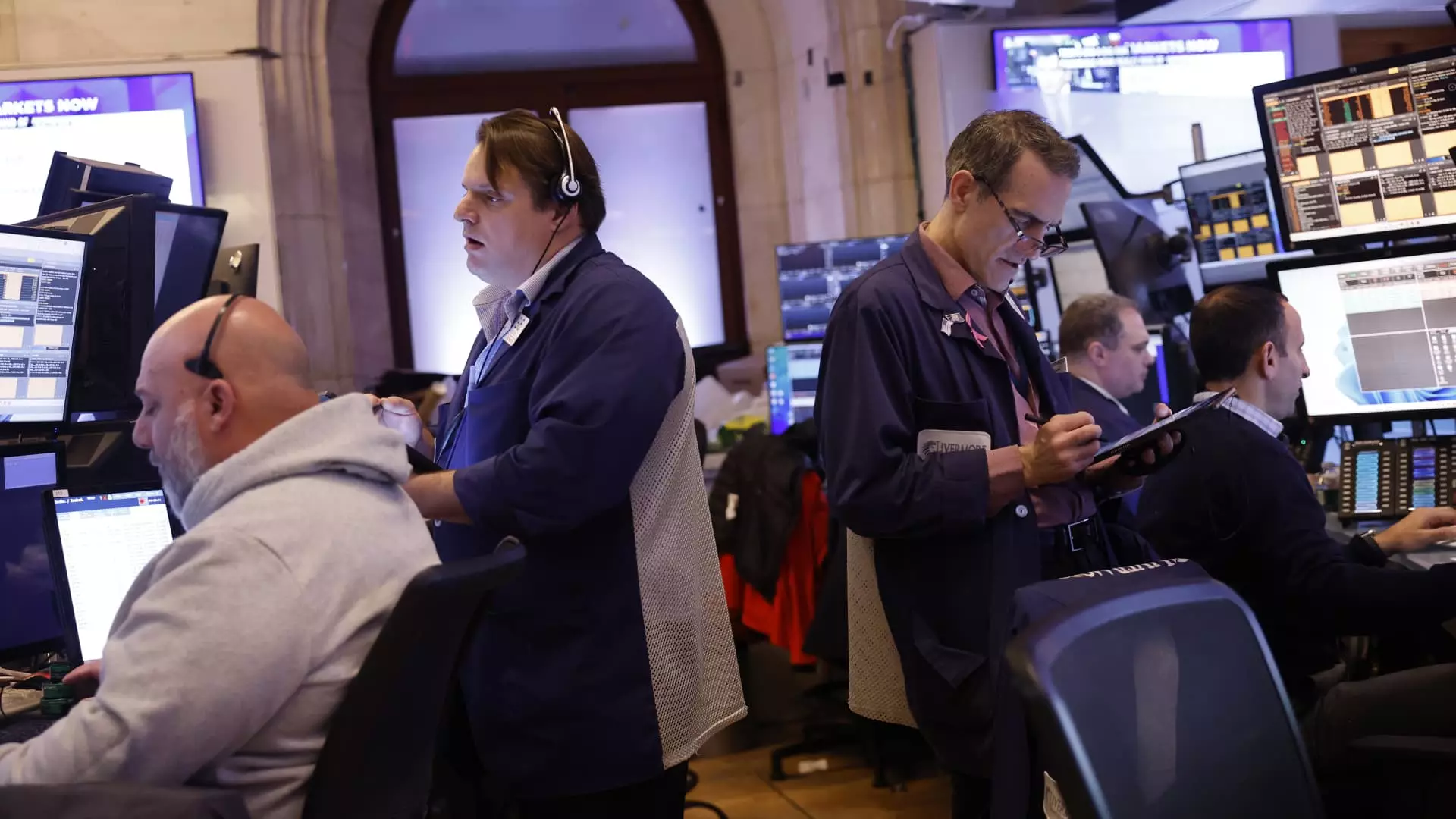Since the conclusion of the presidential election, a significant number of large U.S. corporations have witnessed remarkable stock performance. According to analysis from S&P Global Market Intelligence, between November 5 and November 20, the top 10 performers within the S&P 500 index achieved returns exceeding 18%—a stark contrast to the overall index, which managed a modest 2% increase in the same timeframe. Standout companies such as Axon Enterprise (AXON), known for its law enforcement technology, and electric-vehicle manufacturer Tesla (TSLA) have outperformed expectations, with their shares gaining over 35% post-election.
These surges are indicative of a broader market sentiment responding not only to political changes but also to speculations about future policy decisions. Such dramatic price shifts can enthrall investors, but they come with a warning: the allure of short-term gains can be deceptively enticing.
Although there may be an undeniable thrill in observing rapid stock increases, financial experts advocate for caution. Jeremy Goldberg, a certified financial planner and portfolio manager at Professional Advisory Services, underscores the inherent risks of adopting a short-term investment strategy. According to him, momentum can be misleading. Stakeholders must thoroughly understand the drivers of stock price movements, with a key focus on their sustainability.
Investors entranced by soaring prices should consider the potential for volatility. The rapid price changes prompted by election-induced euphoria can recede just as swiftly as they rise.
Various sectors are benefitting disproportionately from the anticipated shifts in regulatory frameworks under the new administration. In particular, the energy sector seems well-positioned for growth. Analysts predict that the Trump administration may advocate for an acceleration of oil and gas projects, blueprints that could potentially alter the landscape of U.S. energy production. For example, EQT Corporation, one of the country’s leading natural gas producers, saw its stock price spike 24% from November 5 to November 20, benefiting from investor optimism about the energy sector’s future under less restrictive regulatory oversight.
Moreover, the anticipated easing of merger regulations may create new avenues for consolidation among companies, especially in sectors like streaming and technology. Firms such as Warner Bros. Discovery and The Walt Disney Company could find themselves buoyed by the prospect of a more permissive environment for mergers and acquisitions.
Alongside favorable regulatory expectations, strong corporate earnings figures have played a vital role in certain companies’ stock performances. Many organizations reported outstanding quarterly results around Election Day, naming artificial intelligence (AI) as a critical driver of their success. Palantir Technologies, for instance, noted unprecedented demand for its AI platform during their third-quarter report, which contributed to a notable uptick in shareholder value.
Similarly, Axon, which saw a jump in its stock following a promising earnings report, successfully raised its earnings guidance by emphasizing its AI-driven strategies. This dual influence of sound financial performance and advantageous policy shifts showcases the complex interplay of factors impacting stock prices.
The Elon Musk Factor: A Complicated Influence
The unique persona of Elon Musk, CEO of Tesla, introduces another layer of complexity to the analysis. His prominent role in the Trump campaign and subsequent involvement in government efficiency initiatives have created what could be termed an “Elon Musk premium” on Tesla’s stock. Post-election, Tesla shares surged, reflecting market enthusiasm about the company’s trajectory and potential growth, especially as federal tax credits for other electric vehicle competitors come under scrutiny.
Musk’s influence does not exist in a vacuum; it intertwines with broader market dynamics and political landscapes, ultimately affecting investor sentiment and stock valuation.
While post-election stock performance reveals considerable gains among specific sectors and companies, potential investors must engage with caution. The enticement of quick profits should be balanced against the realities of market volatility and the long-term sustainability of rapid price movements. Especially in an environment where regulatory changes may create new advantages, a deep understanding of the mechanisms driving market sentiments is crucial for informed investing. Adopting a thoughtful and strategic approach will remain vital for navigating the complex and shifting landscape of U.S. stocks in the wake of the election.

